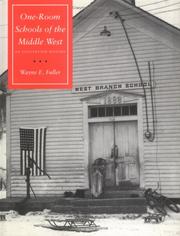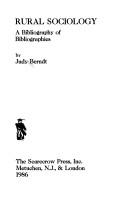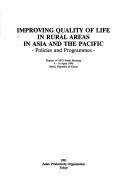| Listing 1 - 10 of 20786 | << page >> |
Sort by
|
Book
ISBN: 1554426529 Year: 2004 Publisher: Chicoutimi : J.-M. Tremblay,
Abstract | Keywords | Export | Availability | Bookmark
 Loading...
Loading...Choose an application
- Reference Manager
- EndNote
- RefWorks (Direct export to RefWorks)
Book
ISBN: 1554413052 Year: 2002 Publisher: Chicoutimi : J.-M. Tremblay,
Abstract | Keywords | Export | Availability | Bookmark
 Loading...
Loading...Choose an application
- Reference Manager
- EndNote
- RefWorks (Direct export to RefWorks)
Book
ISBN: 2864799448 Year: 1985 Publisher: Paris : Agri-Nathan International,
Abstract | Keywords | Export | Availability | Bookmark
 Loading...
Loading...Choose an application
- Reference Manager
- EndNote
- RefWorks (Direct export to RefWorks)
Book
ISBN: 1526161621 Year: 2023 Publisher: Manchester : Manchester University Press,
Abstract | Keywords | Export | Availability | Bookmark
 Loading...
Loading...Choose an application
- Reference Manager
- EndNote
- RefWorks (Direct export to RefWorks)
The 2020 World Happiness Report suggests that rural residents in Northern and Western Europe, North America, Australia and New Zealand are generally happier than their urban counterparts. Similar findings have been reported in country-level studies and broader regional research, especially in Europe. Such findings go against conventional wisdom in the field and represent something of a conundrum to researchers and policymakers alike: the rural-urban happiness paradox. Is quality of life really better in the countryside? How and under which circumstances is this the case? Did influential writers like Edward Glaeser get it all wrong when suggesting that the city had now triumphed? What can we learn from digging deeper in the rural-urban happiness paradox and which critical questions does this leave us with for the future? What might policymakers, planners, architects and other influential actors learn from such an exercise? The purpose of the proposed book is to delve deeper into these matters by asking what quality of life in rural areas is actually all about. Since 2018 a cross-disciplinary team of researchers from four research environments at three Danish universities has been carrying out an ambitious research project to do just that. In this edited volume their findings are presented alongside chapters written by specially commissioned international authors from across Europe, North America, Asia and Africa.

ISBN: 0700606378 9780700606375 Year: 1994 Publisher: Lawrence: University Press of Kansas,
Abstract | Keywords | Export | Availability | Bookmark
 Loading...
Loading...Choose an application
- Reference Manager
- EndNote
- RefWorks (Direct export to RefWorks)
The Midwest's one-room schools were, Fuller observes, the most democratic in the nation. Located in small, independent school districts, these schools virtually wiped out illiteracy, promoted democratic values, and opened up new vistas beyond the borders of their students' lives." "Entire communities, Fuller shows, revolved around these schools. At various times they were used as churches, polling places, sites of political caucuses, and meeting halls for local organizations. But as America urbanized and the movement to consolidate took hold in rural counties, these little centers of learning were left at the margins of the educational system. Some were torn down, some left to weather away, some sold at auction, and still others transformed into museums." "Despite its demise, Fuller argues, here was a school system that worked. His book offers a timely reminder of what schools can accomplish when communities work closely together to educate their children.

ISBN: 9780810818606 0810818604 Year: 1986 Publisher: Metuchen (N.J.): Scarecrow press,
Abstract | Keywords | Export | Availability | Bookmark
 Loading...
Loading...Choose an application
- Reference Manager
- EndNote
- RefWorks (Direct export to RefWorks)
Book
Year: 1972 Publisher: Paris: Économie et humanisme,
Abstract | Keywords | Export | Availability | Bookmark
 Loading...
Loading...Choose an application
- Reference Manager
- EndNote
- RefWorks (Direct export to RefWorks)

ISBN: 9789283321101 9283321103 Year: 1991 Publisher: Tokyo: Asian productivity organization,
Abstract | Keywords | Export | Availability | Bookmark
 Loading...
Loading...Choose an application
- Reference Manager
- EndNote
- RefWorks (Direct export to RefWorks)
Book
Year: 1948 Publisher: New York: American book company,
Abstract | Keywords | Export | Availability | Bookmark
 Loading...
Loading...Choose an application
- Reference Manager
- EndNote
- RefWorks (Direct export to RefWorks)
Book
ISBN: 080185170X Year: 1996 Publisher: Baltimore (Md.) : Johns Hopkins university press,
Abstract | Keywords | Export | Availability | Bookmark
 Loading...
Loading...Choose an application
- Reference Manager
- EndNote
- RefWorks (Direct export to RefWorks)
| Listing 1 - 10 of 20786 | << page >> |
Sort by
|

 Search
Search Feedback
Feedback About UniCat
About UniCat  Help
Help News
News